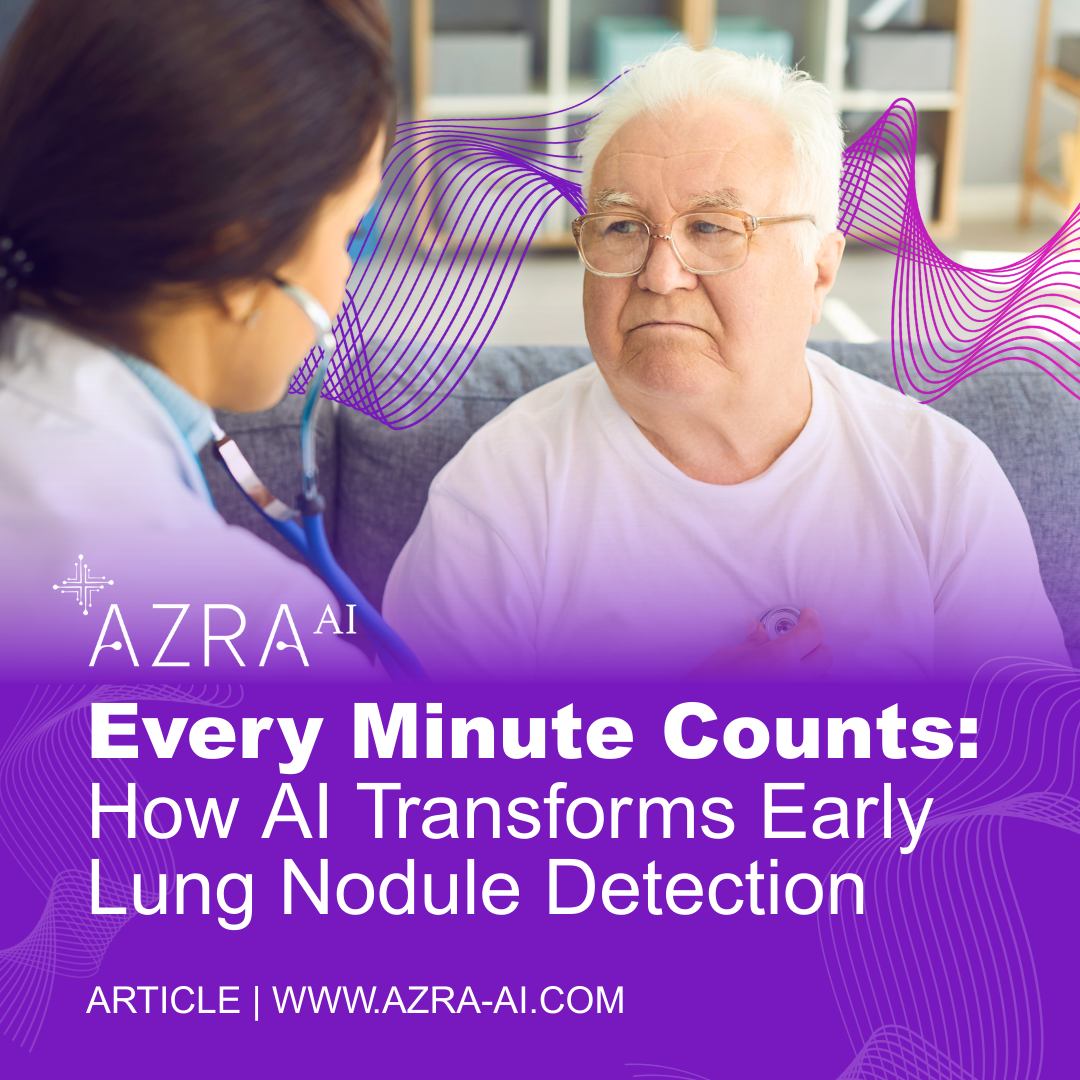It’s a familiar story. A patient is sent to an emergency room after an accident. Fortunately, they’re okay, just some soreness. As a precaution, they undergo a CT, which comes back clear of internal injuries from the accident. However, something unexpected appears in the image: a small, suspicious nodule on the lower lobe of the left lung.
It’s documented in the radiology report and the patient is discharged. Eighteen months later, the same patient is back—this time with stage IV lung cancer. This isn’t a human error; it’s a systematic oversight that is far too common in overburdened health systems.
The answer to this common problem isn’t to replace clinicians, but to amplify them with a reliable AI solution so they can spend less time chasing reports and more time providing care and saving lives.
Stretched Teams Lead to Missed Minutes
Despite being the leading cause of cancer death in the U.S., lung cancer screening rates remain shockingly low. Only 18.1% of eligible patients are screened nationally, according to recent data cited in the ACCC’s 2025 Trending Now in Cancer Care report.
Often, incidental pulmonary nodules are caught in imaging performed for unrelated reasons, like trauma or abdominal pain. These findings are noted in radiology reports, but without a clear system to triage and track them, they’re frequently overlooked.
“This is happening in all of your emergency departments today. I guarantee it,” says a Lung Cancer Screening and Incidental Pulmonary Nodule Program Coordinator panelist featured in ACCC’s 2025 report.
AI: A Reliable Partner in Early Detection Lung Nodule Detection
To support clinicians in addressing these systemic gaps, many cancer programs are now leveraging artificial intelligence, not as a replacement for human expertise, but as a tool to make their work more effective and sustainable.
At Azra AI, our technology reads hundreds of thousands of radiology reports each year, scanning for critical terms like “nodule,” “mass,” “opacity,” and “ground glass.” It then cross-references those findings with anatomical location and size, allowing for real-time risk stratification of potential lung cancer cases. Best of all, there’s no change to the radiologist’s dictation pattern or disruption to their workflow.
“There’s no change to our workflow. Radiologists don’t do anything differently. AI just does the background work,” explains the panelist. This behind-the-scenes triaging ensures that critical findings make it onto a navigator’s radar quickly, so no patient falls through the cracks.
Every Minute, Every Nodule, Every Life
Healthcare professionals are doing everything they can, but they’re working within systems that are operating at full capacity, without signs of slowing down. That’s where AI comes in, not as a silver bullet, but as a powerful partner that helps clinicians continue to do what they do best: provide personalized care for their patients.
Azra AI helps hospitals and cancer programs catch incidental findings sooner, connect patients to care faster, and manage their patients' care journeys. Because in cancer care, every minute counts.
Schedule a demo today to learn how Azra AI can support your lung nodule program and empower your team to continue providing quality care, without adding to their workloads.


.png)
.png)
.png)